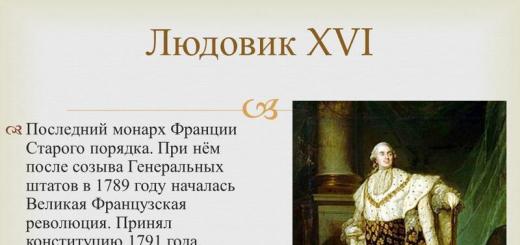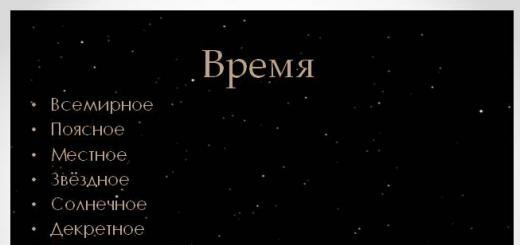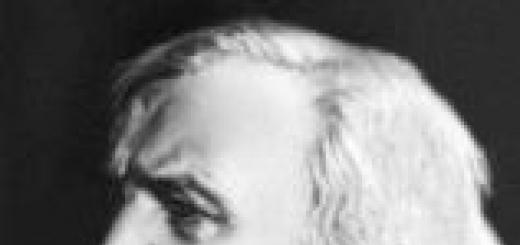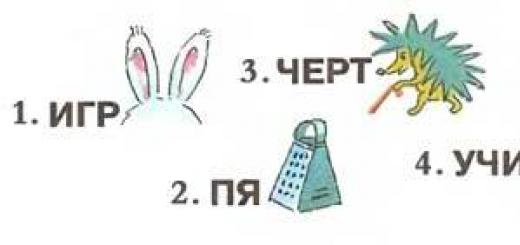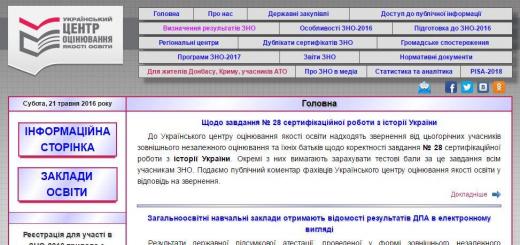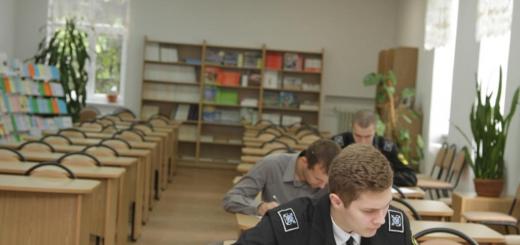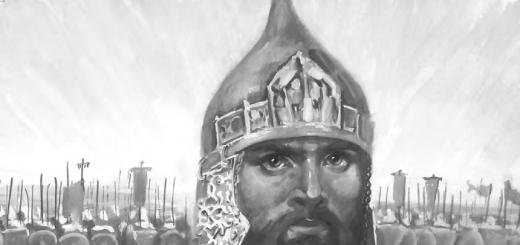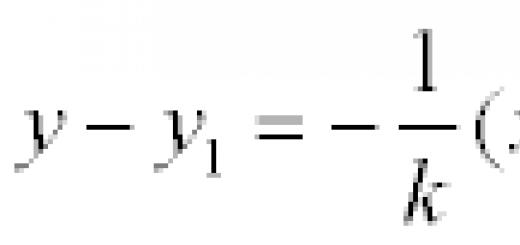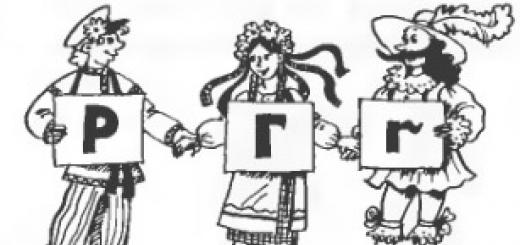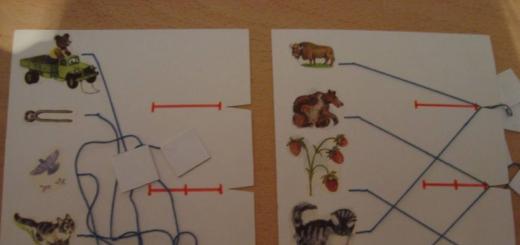Nikolai Nekrasov is the progenitor of a new literary speech, which his contemporaries successfully recreated and improved at the beginning of the 20th century.
Nikolai Alekseevich’s revolution proceeded in two directions at once: content (the writer touched on topics in his works that were not customary to talk about even in prose) and metric (poetry, squeezed into iambic and trochee, thanks to him received a rich arsenal of trimeters).
Russian literature, like Russian social life, developed within the framework of a dichotomy until the end of the 60s. Nekrasov in his work pushed the boundaries of consciousness, explaining to people that there are at least three points of view on the same question.
Childhood and youth
Nikolai Alekseevich Nekrasov was born on November 28, 1821 in the Podolsk province, where the 36th Jaeger Infantry Regiment, in which his father served as a captain, was stationed.
The head of the family, Alexei Sergeevich, was a despot who was proud of his noble origins. The avid gambler was not interested in either poetry or prose. The mentally unstable man was good at only two things - hunting and assault. Despite the fact that intellectual demands were alien to Alexei, it was in his father’s library that young Nekrasov read the ode “Liberty,” which was prohibited at that time.

Mother Elena Alekseevna was the complete opposite of her husband. A gentle young lady with a fine spiritual organization, she played music and read all the time. In the illusory world of books, she escaped from the harsh everyday realities. Subsequently, Nekrasov will dedicate the poem “Mother” and “Knight for an Hour” to this “holy” woman.
Nekrasov was not the only child. In the difficult atmosphere of his father’s brutal reprisals against peasants, Alexei Sergeevich’s stormy orgies with his serf mistresses and cruel treatment of his “recluse” wife, 13 more children grew up.
In 1832, Nekrasov entered the Yaroslavl gymnasium, where he reached only the 5th grade. The father always wanted his son to follow in his footsteps and become a military man. In 1838, 17-year-old Nikolai went to St. Petersburg to be assigned to a noble regiment.

In the cultural capital, the young man met his fellow countryman, Andrei Glushitsky, who told the poet about the delights of studying at a higher educational institution. Inspired, Nekrasov, contrary to his father’s instructions, decides to enter the philological faculty of St. Petersburg University. However, the ambitious guy fails the entrance exam and earns the status of a volunteer (1831-1841).
As a student, Nikolai Nekrasov suffered terrible poverty. Left without material support, he spent the night in gateways and basements, and only saw a full meal in his dreams. Terrible hardships not only prepared the future writer for adult life, but also strengthened his character.
Literature
The first collection of poems by young Nekrasov was “Dreams and Sounds”. The book was prepared in 1839, but Nekrasov was in no hurry to publish his “brainchild”. The writer doubted the poetic maturity of his poems and was looking for a strict adviser.
Having the proofs in hand, the aspiring writer asked the founder of romanticism to familiarize himself with it. Vasily Andreevich advised not to publish the book under his own name, explaining that in the future Nekrasov would write great works, and Nikolai Alekseevich would be ashamed of this “unprofessionalism”.

As a result, the collection was published under the pseudonym N.N. This collection was not successful with the public, and after criticism by Vissarion Grigorievich Belinsky in the literary magazine Otechestvennye zapiski it was destroyed personally by Nekrasov.
Together with the writer Ivan Ivanovich Panaev, using borrowed money, in the winter of 1846, the poet rented Sovremennik. The publication published leading writers and all those who hated serfdom. In January 1847, the first issue of the updated Sovremennik took place. In 1862, the government suspended the work of the magazine, which was objectionable to the highest ranks, and in 1866 closed it altogether.

In 1868, Nikolai Alekseevich bought the rights to “Notes of the Fatherland”. There the classic was published throughout the subsequent years of its short life.
Among the great variety of works by the writer, the poems “Russian Women” (1873), “Frost, Red Nose” (1863), “Peasant Children” (1861), “On the Volga” (1860) and the poem “Grandfather Mazai” especially stood out. and Hares" (1870), "A Little Man with a Marigold" (1861), "Green Noise" (1862-1863), "Hearing the Horrors of War" (1855).
Personal life
Despite his successful literary policy and the fantastic amount of information that the writer issued monthly (more than 40 printed sheets of proofs) and processed, Nekrasov was an extremely unhappy person.
Sudden attacks of apathy, when the poet did not contact anyone for weeks, and multi-night “card battles” made the arrangement of his personal life almost impossible.

In 1842, at a poetry evening, Nikolai Alekseevich met the wife of the writer Ivan Panaev, Avdotya. The woman was beautiful, had an extraordinary mind and excellent oratorical abilities. As the owner of a literary salon, she constantly “gathered” eminent literary figures (Chernyshevsky, Belinsky) around her.

Despite the fact that Ivan Panaev was an inveterate rake, and any woman would be glad to get rid of such a would-be husband, Nekrasov had to make considerable efforts in order to earn the favor of the charming young lady. It is reliably known that he was in love with the beauty and, however, he failed to achieve reciprocity.
At first, the wayward woman rejected the advances of 26-year-old Nekrasov, which is why he almost committed suicide. But during a joint trip to the Kazan province, the charming brunette and the budding writer nevertheless confessed their feelings to each other. Upon their return, they and Avdotya’s legal husband began to live in a civil marriage in the Panayevs’ apartment.
The Triple Alliance lasted 16 years. All this action caused censure from the public - they said about Nekrasov that he lives in someone else’s house, loves someone else’s wife and at the same time makes scenes of jealousy for his legal husband.

Despite the slander and misunderstanding, Nekrasov and Panaeva were happy. In tandem, the lovers write a cycle of poetry, calling it “Panaevsky”. Biographical elements and dialogue, sometimes with the heart, sometimes with the mind, contrary to popular belief, make the works in this collection absolutely different from the Denisyev Cycle.
In 1849, the famous poet’s muse gave birth to his son. However, the “heir to the talents” of the writer lived only a couple of hours. Six years later, the young lady again gives birth to a boy. The child was extremely weak and died after four months. Due to the impossibility of having children in the couple of Nekrasov and Panayeva, quarrels begin. The once harmonious couple can no longer find “common points of contact.”

In 1862, Avdotya’s legal husband, Ivan Panaev, dies. Soon the woman realizes that Nikolai Alekseevich is not the hero of her novel, and leaves the poet. It is reliably known that in the writer’s will there is a mention of “the love of his life.”
On a trip abroad in 1864, Nekrasov lived for 3 months in an apartment with his companions - his sister Anna Alekseevna and the Frenchwoman Selina Lefren, whom he met back in St. Petersburg in 1863.
Selina was an actress of a French troupe performing at the Mikhailovsky Theater, and because of her easy disposition, she did not take her relationship with the poet seriously. Lefren spent the summer of 1866 in Karabikha, and in the spring of 1867 she again went abroad with Nekrasov. However, this time the fatal beauty never returned to Russia. This did not interrupt their relationship - in 1869 the couple met in Paris and spent the whole of August by the sea in Dieppe. The writer also mentioned her in his dying will.

At the age of 48, Nekrasov met a simple-minded 19-year-old village girl, Fekla Anisimovna Viktorova. And although the young lady did not have outstanding external characteristics and was extremely modest, the master of the literary word immediately liked her. For Thekla, the poet became the man of her life. He not only revealed to a woman the vicissitudes of love, but also showed the world.
Nekrasov and his young girlfriend lived together for five happy years. Their love story was reminiscent of the plot of the play Pygmalion. Lessons in French, Russian grammar, vocals and playing the piano transformed the writer’s common-law wife so much that instead of an overly common name, the poet began to call her Zinaida Nikolaevna, giving her a patronymic in his own name.
The poet had the most tender feelings for Thekla, but throughout his life he yearned for both the carefree Frenchwoman Selina Lefren, with whom he had an affair abroad, and for the obstinate Avdotya Yakovlevna.
Death
The last years of the great writer’s life were filled with agony. The publicist purchased a “one-way ticket” at the beginning of 1875, when he became seriously ill.
The classic man, who did not particularly care about his health, consulted a doctor only in December 1876 after his affairs became very bad. The examination was carried out by Professor Nikolai Sklifosovsky, who then worked at the Medical-Surgical Academy. During a digital examination of the rectum, he clearly identified a tumor the size of an apple. The eminent surgeon immediately informed both Nekrasov and his assistants about the tumor in order to collectively decide what to do next.

Although Nikolai Alekseevich understood that he was seriously ill, he refused to increase the dose of opium until the very end. The already middle-aged writer was afraid of losing his ability to work and becoming a burden to his family. It is reliably known that during the days of remission, Nekrasov continued to write poems and completed the fourth part of the poem “Who Lives Well in Rus'.” On the Internet to this day you can find photographs where the classic “enslaved by disease” lies on the bed with a piece of paper and thoughtfully looks into the distance.
The treatment used was losing effectiveness, and in 1877 the desperate poet turned to surgeon E.I. for help. Bogdanovsky. The writer’s sister, having learned about the surgical intervention, wrote a letter to Vienna. In it, the woman tearfully asked the eminent professor Theodor Billroth to come to St. Petersburg and operate on his beloved brother. On April 5, agreement came. A close friend of Johannes Brahms asked for 15 thousand Prussian marks for the work. Preparing for the arrival of the surgeon, N.A. Nekrasov borrowed the required amount of money from his brother Fedor.

The attending doctors had to agree with the decision and wait for their colleague to arrive. Professor T. Billroth arrived in St. Petersburg on April 11, 1877. The medical luminary was immediately acquainted with the classic’s medical history. On April 12, Theodor examined Nekrasov and scheduled an operation for the evening of the same day. The hopes of family and friends were not justified: the painful operation led to nothing.
The news of the poet's fatal illness spread across the country in an instant. People from all over Russia sent letters and telegrams to Nikolai Alekseevich. Despite the terrible torment, the eminent literary figure continued to correspond with concerned citizens until he became completely paralyzed.
In the book “Last Songs” written during this time, the literary figure summed up the results, drawing an invisible line between life and creativity. The works included in the collection are a literary confession of a man who anticipates his imminent death.

In December, the publicist’s condition worsened sharply: along with increasing general weakness and emaciation, constantly increasing pain in the gluteal area, chills, swelling on the back of the thigh and swelling in the legs appeared. Among other things, foul-smelling pus began to come out of the rectum.
Before his death, Nekrasov decided to legitimize his relationship with Zinaida. The patient did not have the strength to go to church, and the wedding took place at home. On December 14, who observed the patient N.A. Belogolovy determined complete paralysis of the right half of the body and warned his relatives that the condition would progressively worsen every day.
On December 26, Nikolai Alekseevich one by one called his wife, sister and nurse to him. He said a barely audible “goodbye” to each of them. Soon consciousness left him, and on the evening of December 27 (January 8, 1878, new style), the eminent publicist died.

On December 30, despite the severe frost, a crowd of thousands accompanied the poet “on his last day” from his house on Liteiny Prospekt to his eternal resting place - the cemetery of the Novodevichy Convent.
In his farewell speech, Dostoevsky awarded Nekrasov third place in Russian poetry after Pushkin and. The crowd interrupted the writer with shouts of “Yes, higher, higher than Pushkin!”
Immediately after the funeral, Zinaida Nikolaevna turned to the abbess of the monastery with a request to sell her a place next to her husband’s grave for her future burial.
Bibliography
- "Actor" (play, 1841)
- "Rejected" (play, 1859)
- "The Official" (play, 1844)
- “Theoklist Onufrich Bob, or The Husband Is Out of Place” (play, 1841)
- “Lomonosov’s Youth” (dramatic fantasy in verse in one act with an epilogue, 1840)
- “Contemporaries” (poem, 1875)
- “Silence” (poem, 1857)
- “Grandfather” (poem, 1870)
- “Cabinet of Wax Figures” (poem, 1956)
- “Who Lives Well in Rus'” (poem, 1863-1876)
- “Peddlers” (poem, 1861)
- “Recent Time” (poem, 1871)
It was Nekrasov who expanded the range of the poetic genre with colloquial speech and folklore. No one had practiced such combinations before him. This innovation had a great influence on the further development of literature.
Nekrasov was the first to decide on a combination of sadness, satire and lyricism within one work.
Biographers like to divide the history of Nikolai Alekseevich’s development as a poet into three periods:
✪ The moment of release of the collection “Dreams and Sounds”. This is the image of the poet, which was created in the lyrics of Pushkin, Lermontov, Baratynsky. The young man still wants to be like this image, but is already looking for himself in his own personal creativity. The writer has not yet decided on his direction, and is trying to imitate recognized writers.
✪ Since 1845. Now the poet depicts street scenes in his poems, and this is liked and welcomed. Before us is a poet of a new format who already knows what he wants to say.
✪
Late 40s - Nekrasov is a famous poet and successful writer. He edits the most influential literary world at that time.
At the beginning of your creative journey
Very young, with great difficulty, eighteen-year-old Nekrasov reached St. Petersburg. He kept with him a notebook of youthful poems. The young man believed in his capabilities. It seemed to him that the poet’s fame would happen as soon as people began to read his poems.And indeed, a year later he was able to publish his first book - poetry. The book was called "Dreams and Sounds." The success that the author expected did not follow. This did not break the poet.
The young man strived for education. He decided to attend lectures at St. Petersburg University as a volunteer, but this was also a very short-lived project of his, which ended in failure. His father deprived him of all help; there was nothing to live on. The young man put aside his high title for several years and began to write for various magazines and newspapers, becoming a literary day laborer. Vaudeville, prose, satirical stories - this is how Nikolai earned money in his early years.
Fortunately, in 1845 everything changed. Together with the poet Ivan Panaev, the young authors published an almanac with the attractive title “Physiology of St. Petersburg.” The collection was expected to be a success. Absolutely new heroes appeared to the Russian reader. These were not romantic characters, not duelists. These were ordinary residents of St. Petersburg: janitors, organ grinders, in general, those who need sympathy.
Contemporary
A year later, at the end of 1846, young writers go even further. They are a well-known magazine "Contemporary" are issued for rent. This is the same magazine that was founded in 1836 by Pushkin.Already in January 1847, the first issues of Sovremennik were published.
 The contemporary is also a resounding success. New Russian literature begins with this magazine. Nikolai Alekseevich is a new type of editor.
He assembled an excellent team of literary professionals. All Russian literature seems to have narrowed down to a narrow circle of like-minded people. To make a name for himself, a writer had only to show his manuscript to Nekrasov, Panaev or Belinsky, he would like it and be published in Sovremennik.
The contemporary is also a resounding success. New Russian literature begins with this magazine. Nikolai Alekseevich is a new type of editor.
He assembled an excellent team of literary professionals. All Russian literature seems to have narrowed down to a narrow circle of like-minded people. To make a name for himself, a writer had only to show his manuscript to Nekrasov, Panaev or Belinsky, he would like it and be published in Sovremennik.
The magazine began to educate the public in an anti-serfdom and democratic spirit.
When Dobrolyubov and Chernyshevsky began to be published in the publication, the old employees began to be indignant. But Nikolai Alekseevich was sure that thanks to the diversity of the magazine, its circulation would increase. The bet worked. The magazine, aimed at diverse young people, attracted more and more readers.
But in 1862, a warning was issued to the writing team, and the government decided to suspend the publication’s activities. It was renewed in 1863.
After the assassination attempt on Emperor Alexander II in 1866, the magazine was closed forever.
Creative flourishing
In the mid-40s, while working at Sovremennik, Nikolai Alekseevich gained fame as a poet. This glory was undeniable. Many people did not like the poems; they seemed strange and shocking. For many, beautiful paintings and landscapes were not enough.
With his lyrics, the writer glorifies simple everyday situations. Many people think that the position of the people's defender is just a mask, but in life the poet is a completely different person.
The writer himself worked a lot on his own biography, creating the image of a poor man and therefore well understanding of the soul of the poor. At the beginning of his creative career, he actually ate bread in public canteens, hiding behind a newspaper in shame; for some period he slept in a shelter. All this, of course, strengthened his character.
When, finally, the writer began to live the life of a wealthy writer, this life ceased to fit in with the legend, and his contemporaries formed a counter-myth about a sensualist, a gambler, a spender.
Nekrasov himself understands the duality of his position and reputation. And he repents in his poems.
That's why I deeply despise myself,
That I live - day after day, uselessly destroying;
That I, without trying my strength at anything,
He condemned himself with a merciless court...
The most striking works
There were different periods in the author's work. They all found their reflection: classical prose, poetry, drama.The debut of literary talent can be considered a poem "On the road" , written in 1945, where a conversation between a master and a serf reveals the attitude of the nobility towards the common people. The gentlemen wanted to - they took a girl into the house to raise her, and after an audit of the serfs, they took a grown, well-mannered girl and kicked her out of the manor’s house. She is not adapted to village life, and no one cares about that.
 For about ten years, Nekrasov has been published on the pages of the magazine, of which he himself is the editor. It is not only poetry that occupies the writer. Having become close to the writer Avdotya Panaeva, falling in love with her, appreciating her talent, Nikolai creates a kind of tandem.
For about ten years, Nekrasov has been published on the pages of the magazine, of which he himself is the editor. It is not only poetry that occupies the writer. Having become close to the writer Avdotya Panaeva, falling in love with her, appreciating her talent, Nikolai creates a kind of tandem.
One after another, novels written in co-authorship are being published. Panaeva published under the pseudonym Stanitsky. Most notable “Dead Lake”, “Three Countries of the World” .
Early significant works include the following poems: “Troika”, “Drunkard”, “Hound Hunt”, “Motherland” .
In 1856, his new collection of poems was published. Each verse was imbued with pain about the people, their difficult lot in conditions of complete lawlessness, poverty and hopelessness: “Schoolboy”, “Lullaby”, “To the Temporary Worker” .
A poem born in agony "Reflections at the Front Entrance" in 1858. It was ordinary life material, only seen from the window, and then, decomposed into themes of evil, judgment and retribution.
In his mature work, the poet did not betray himself. He described the difficulties that all strata of society faced after the abolition of serfdom.
The following nicknames occupy a special textbook place:
✪ A large verse dedicated to the poet’s sister, Anna Alekseevna "Jack Frost" .
✪ "Railway" , where the author shows without embellishment the other side of the construction medal. And he does not hesitate to say that nothing changes in the lives of the serfs who received their freedom. They are also exploited for pennies, and the masters of life deceitfully take advantage of illiterate people.
✪ Poet "Russian women" , was originally supposed to be called “Decembrists”. But the author changed the title, trying to emphasize that any Russian woman is ready for sacrifice, and she has enough mental strength to overcome all obstacles.
✪
Even though the poem “Who lives well in Rus'”
was conceived as a voluminous work, only four parts saw the light of day. Nikolai Alekseevich did not have time to finish his work, but he tried to give the work a finished look.
Idioms
The extent to which Nekrasov’s work remains relevant to this day can be judged by the most famous phrases. Here are just a few of them.
✪ The 1856 collection opened with the poem “The Poet and the Citizen.” In this poem the poet is inactive, does not write. And then a citizen comes to him and calls on him to start working.
You may not be a poet
But you have to be a citizen.
These two lines contain such a philosophy that writers still interpret them differently.
✪ The author constantly used gospel motifs. The poem “To the Sowers,” written in 1876, was based on the parable of a sower who sowed grain. Some grains sprouted and bore good fruit, while others fell on a stone and died. Here the poet exclaims:
Sower of knowledge for the people's field!
Perhaps you find the soil barren,
Are your seeds bad?
Sow what is reasonable, good, eternal,
Sow! Thank you from the bottom of my heart
Russian people…
The conclusion suggests itself. Not everyone and not always say thank you, but the sower sows by choosing fertile soil.
✪ And this excerpt, known to everyone, from the poem “Who Lives Well in Rus'” can be considered the culminating last chord of Nekrasov’s work:
You're miserable too
You are also abundant
You are mighty
You are also powerless
Mother Rus'!
(453 words) Nikolai Nekrasov cannot be attributed to a single profession; in his work he was multifaceted: he was fond of prose, poetry, and journalism. Therefore, his personality is very multifaceted, and his life path is thorny and varied.
The writer was born on November 28, 1821 in the Podolsk province in the city of Nemirov. His parents - Alexey Nekrasov and Elena Zakrevskaya - had different social status and financial situation, so their marriage was not blessed by their parents. However, this did not stop them from creating a large family, in which the future writer and 13 more children were born.
Life in the house could not be called carefree and happy. The cruelty and despotism of the father ran counter to the tenderness and complaisance of the mother, conflicts arose that left a mark on the life and work of the poet.
Youth and education
Nekrasov's education began at the age of 11 with admission to the gymnasium. Within a couple of years, he begins to compose his first satirical poems. However, the gymnasium did not accept such creativity, so in 1837 Nekrasov was forced to leave the institution and move to St. Petersburg.
There the writer was faced with a choice: education or military service. Nekrasov's father, being a military man himself, insisted on a military career and gave his son an ultimatum - either military service or deprivation of financial assistance. My son chose education. As promised, the poet lost financial support and, moreover, did not enter the university. Then he became a volunteer student at the Faculty of Philology.
History of success
Finding himself in a difficult financial situation, Nekrasov is forced to find ways to ensure his existence. So he begins to write petitions and complaints to order in order to have at least some funds.
After such a difficult period of life, luck still smiles on the poet. In 1846, Nekrasov, together with his friend I. Panaev, bought the Sovremennik magazine, where I. Goncharov, I. Turgenev, F. Dostoevsky and others began their journey. The unstable situation in the country, changes in the censorship format and the assassination of Emperor Alexander II inexorably led the magazine to closure.
The author's next refuge was Otechestvennye zapiski. During this period, the writer’s famous works were published - “Who Lives Well in Rus'”, “Russian Women”, “Grandfather”, in which the author raises such pressing issues as devotion, love for the Motherland, the values of freedom and happiness.
Personal life
Three women left their mark in the writer’s personal life. It is believed that he had the strongest love for Ivan Panaev’s wife, Avdotya Panaeva. The couple Avdotya and Nikolai had a son, who soon died. After this tragedy, the lovers separated. Then Nekrasov went to Paris with actress Celine Lefren, but after some time he left her and returned to his homeland.
Later, a simple village girl Fyokla Viktorova appears in his life, who becomes his only legal wife.
Death
In 1875, Nekrasov was diagnosed with a serious illness - intestinal cancer. In 1877, on January 8, the writer dies in the city of St. Petersburg.
Nikolai Nekrasov made a truly significant contribution to Russian literature. As a witness to peasant life, he was able to describe the events taking place in the country as truthfully as possible. Thanks to this, he received the unofficial status of the writer closest to the people.
Interesting? Save it on your wall!Biography and creativity of N.A. Nekrasov.
Childhood.
Nikolai Alekseevich Nekrasov was born on October 10 (November 28), 1821 in Nemirov, Vinnitsa district, Podolsk province.
Nekrasov's father, Alexey Sergeevich, was a small nobleman and an officer. After retiring, he settled on his family estate, in the village of Greshnev, Yaroslavl province (now the village of Nekrasovo). He had several serf souls, whom he treated quite harshly. His son observed this from an early age, and it is believed that this circumstance determined the formation of Nekrasov as a revolutionary poet.
Nekrasov's mother, Alexandra Andreevna Zakrevskaya, became his first teacher. She was educated, and she also tried to instill in all her children (of whom there were 14) a love of the Russian language and literature.
Nikolai Nekrasov spent his childhood years in Greshnev. At the age of 7, the future poet already began to write poetry, and a few years later - satire.
1832 – 1837 – studied at the Yaroslavl gymnasium. Nekrasov is an average student, periodically conflicting with his superiors over his satirical poems.
Petersburg.
1838 - Nekrasov, having not completed the course at the gymnasium (he only reached the 5th grade), leaves for St. Petersburg to join the noble regiment. My father dreamed that Nikolai Alekseevich would become a military man. But in St. Petersburg, Nekrasov, against the will of his father, tries to enter the university. The poet fails the entrance exams, and he has to become a volunteer student at the Faculty of Philology.
1838 - 1840 - Nikolai Nekrasov was a volunteer student at the Faculty of Philology of St. Petersburg University. Having learned about this, his father deprives him of financial support. According to Nekrasov’s own recollections, he lived in poverty for about three years, surviving on small odd jobs. At the same time, the poet is part of the literary and journalistic circle of St. Petersburg.
In the same year (1838) Nekrasov’s first publication took place. The poem “Thought” is published in the magazine “Son of the Fatherland”. Later, several poems appear in the “Library for Reading”, then in the “Literary Additions to the Russian Invalid”.
Nikolai Alekseevich will describe all the difficulties of the first years of life in St. Petersburg later in the novel “The Life and Adventures of Tikhon Trostnikov.” 1840 - with his first savings, Nekrasov decides to publish his first collection, which he does under the signature “N.N.”, despite the fact that V.A. Zhukovsky dissuades him. The collection “Dreams and Sounds” is not successful. Frustrated, Nekrasov destroys part of the circulation.
1841 - Nekrasov begins to collaborate in Otechestvennye zapiski.
During the same period, Nikolai Alekseevich earned his living by doing journalism. He edits the “Russian Newspaper” and runs the columns “Chronicle of St. Petersburg Life” and “Petersburg Dachas and Surroundings”. Collaborates in “Notes of the Fatherland”, “Russian Disabled Person”, theater “Pantheon”. At the same time, under the pseudonym N.A. Perepelsky writes fairy tales, ABCs, vaudeville, and melodramatic plays. The latter are successfully staged on the stage of the Alexandrinsky Theater in St. Petersburg.
Collaboration with Belinsky.
1842-1843 Nekrasov became close to V.G. Belinsky’s circle. In 1845 and 1846, Nekrasov published several almanacs that were supposed to create an image of “grassroots” St. Petersburg: “Physiology of St. Petersburg” (1845), “Petersburg Collection” (1846), “First of April” (1846). The almanacs included works by V.G. Belinsky, Herzen, Dahl, F.M. Dostoevsky, I.S. Turgenev, D.V. Grigorovich. In 1845-1846 Nekrasov lived in Povarsky Lane no. 13 and in no. 19 on the embankment of the Fontanka River. At the end of 1846, Nekrasov, together with Panaev, acquired the Sovremennik magazine from Pletnev, to which many employees of Otechestvennye Zapiski transferred, including
including Belinsky.
Creation.
In 1847-1866 Nikolai Alekseevich Nekrasov was the publisher and actual editor of Sovremennik, on whose pages the works of the best and most progressive writers of that time were published. In the mid-50s, Nekrasov had serious problems with his throat, but treatment in Italy was beneficial. In 1857 N.A. Nekrasov, together with Panaev and A.Ya. Panaeva, moved to an apartment in building 36/2 on Liteiny Prospekt, where he lived until the last days of his life. In 1847-1864 Nekrasov was in a civil marriage with A.Ya. Panaeva. In 1862 N.A. Nekrasov acquired the Karabikha estate, not far from Yaroslavl, where he came every summer. In 1866, the Sovremennik magazine was closed and in 1868 Nekrasov acquired the right to publish Otechestvennye Zapiski (together with M.E. Saltykov; directed in 1868-1877)
Last years of life.
1875 - the poem “Contemporaries” was written. At the beginning of the same year, the poet became seriously ill. The then famous surgeon Billroth came from Vienna to operate on Nekrasov, but the operation did not produce results.
1877 - Nekrasov publishes a cycle of poems “Last Songs”. December 27, 1877 (January 8, 1878) - Nikolai Alekseevich Nekrasov dies in St. Petersburg from cancer. He was buried at the Novodevichy cemetery.
Nekrasov was buried in St. Petersburg.
Nikolai Nekrasov belonged to a noble, once rich family of the Yaroslavl province; was born in the Vinnitsa district of the Podolsk province, where at that time the regiment in which Nekrasov’s father, Lieutenant Alexey Sergeevich served, was stationed. This was a man who experienced a lot in his lifetime. He was not spared by the family weakness of the Nekrasovs - the love of cards (Sergei Nekrasov, the poet’s grandfather, lost almost his entire fortune at cards) Nekrasov’s childhood passed on the Nekrasov family estate, in the village of Greshnev, Yaroslavl province and district, where his father Alexei Sergeevich Nekrasov (1788-- 1862), having retired, moved when his son was 3 years old. A huge family (Nekrasov had 13 brothers and sisters [only three survived - two brothers and a sister]), neglected affairs and a number of processes on the estate forced Nekrasov’s father to take the place of police officer. During his travels, he often took little Nikolai with him, and the arrival of a police officer in the village always marks something sad: a dead body, the collection of arrears, etc. - and thus many sad pictures of folklore were ingrained in the boy’s sensitive soul. grief. In 1832, Nekrasov entered the Yaroslavl gymnasium, where he reached the 5th grade. He studied poorly, mostly skipped classes together with his older brother Andrei, did not get along with the gymnasium authorities (partly because of satirical poems), and since his father always dreamed of a military career for his son, in 1838 16-year-old Nekrasov went to Petersburg, for assignment to the noble regiment.
However, a meeting with a gymnasium friend, student Glushitsky, and acquaintance with other students aroused in young Nekrasov such a thirst for learning that he ignored his father’s threat to leave him without any material help and began to prepare for the entrance exam to St. Petersburg University. He could not stand it and entered the Faculty of Philology as a volunteer student. From 1839 to 1841 Nekrasov spent time at the university, but almost all of his time was spent searching for income. Nekrasov suffered terrible poverty; not every day he had the opportunity to have lunch for 15 kopecks. “For exactly three years,” he later said, “I felt constantly, every day, hungry. More than once it got to the point that I went to a restaurant on Morskaya, where they allowed me to read newspapers, without even asking myself anything. “It used to be that you would just grab a newspaper for appearance’s sake, but you would push yourself a plate of bread and eat.”
Nekrasov did not always have an apartment. He fell ill from prolonged starvation and owed a lot to the soldier from whom he rented a room. When, still half-sick, he went to see a comrade, when the soldiers returned, despite the November night, he did not let him back. A passing beggar took pity on him and took him to some slum on the outskirts of the city. In this shelter, Nekrasov also found income by writing to someone for 15 kopecks. petition. Terrible need hardened Nekrasov, but it also had an adverse effect on the development of his character: he became a “practitioner”, not in the best sense of the word.
